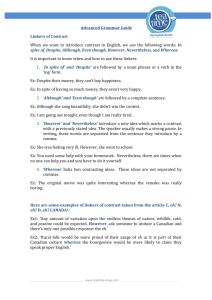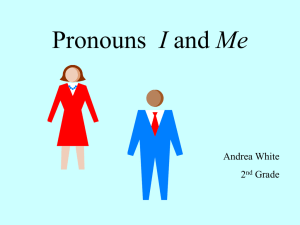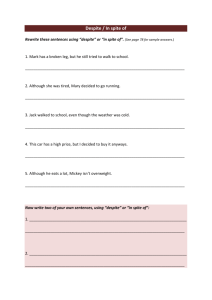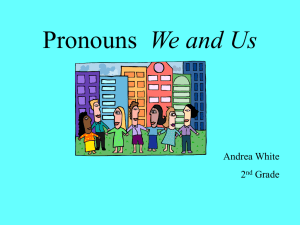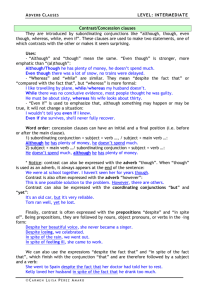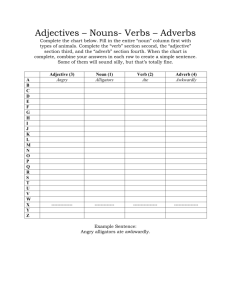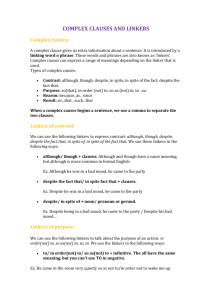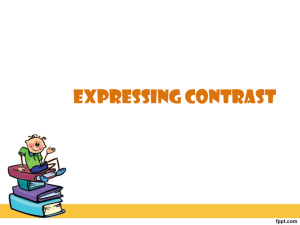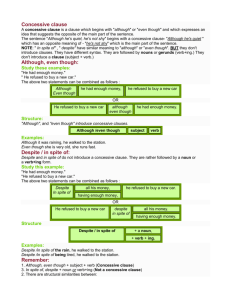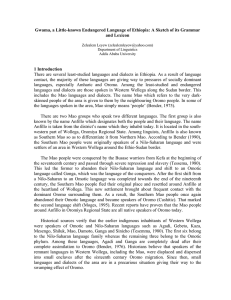English In motion 4 March grammar and vocabulary review
advertisement
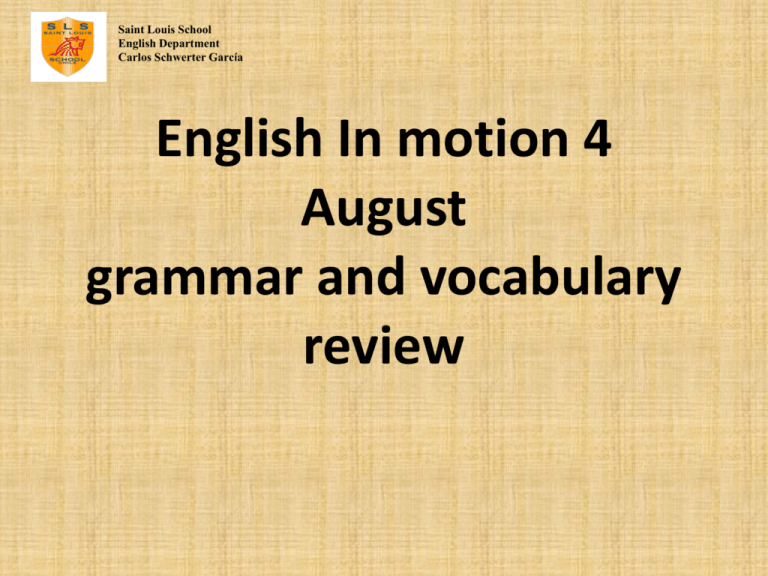
Saint Louis School English Department Carlos Schwerter García English In motion 4 August grammar and vocabulary review Using That, Which, and Who as Relative Pronouns • That, which, and who when used as relative pronouns each has a distinct function. • In modern speech, which refers only to things. • Who (or its forms whom and whose) refers only to people. • That normally refers to things but it may refer to a class or type of person. Examples: • That is a book which I need for the class. • These are the books that I need for the class. • He is the man who will be teaching the class. • They are the type of people who would lie to their mothers. • They are the type of people that would lie to their mothers. Subject and Object questions • Subject Questions: You want to know who/what does something. ??? ate my chocolate. Who ate my chocolate? • Object Questions: You want to know what someone did, or to whom/where/when. Tom ate ??? What did Tom eat? Subject questions are easy to make. You just use 'who' or 'what' instead of the subject of the sentence. • Who wrote Hamlet? (answer: Shakespeare wrote Hamlet. • Who is going home? (answer: My sister is going home.) Object questions are more common but more difficult to make. You need an auxiliary verb (do, be, have ...) before the subject, and a main verb (go, make, think ...) after it. Linkers of contrast and addition • When we want to introduce contrast in English, we use the following words: In spite of, Despite, Although, Even though, However, Nevertheless, and Whereas. • It is important to know when and how to use these linkers: 1. ´In spite of’ and ‘Despite’ are followed by a noun phrase or a verb in the ‘ing’ form. Ex: Despite their money, they can’t buy happiness. Ex: In spite of having so much money, they aren’t very happy. 2. ‘Although’ and ‘Even though’ are followed by a complete sentence. Ex: Although she sang beautifully, she didn’t win the contest. Ex: I am going out tonight, even though I am really tired. 3. ‘However’ and ‘Nevertheless’ introduce a new idea which marks a contrast with a previously stated idea. The speaker usually makes a strong pause. In writing, these words are separated from the sentence they introduce by a comma. Ex: She was feeling very ill. However, she went to school. Ex: You need some help with your homework. Nevertheless, there are times when
